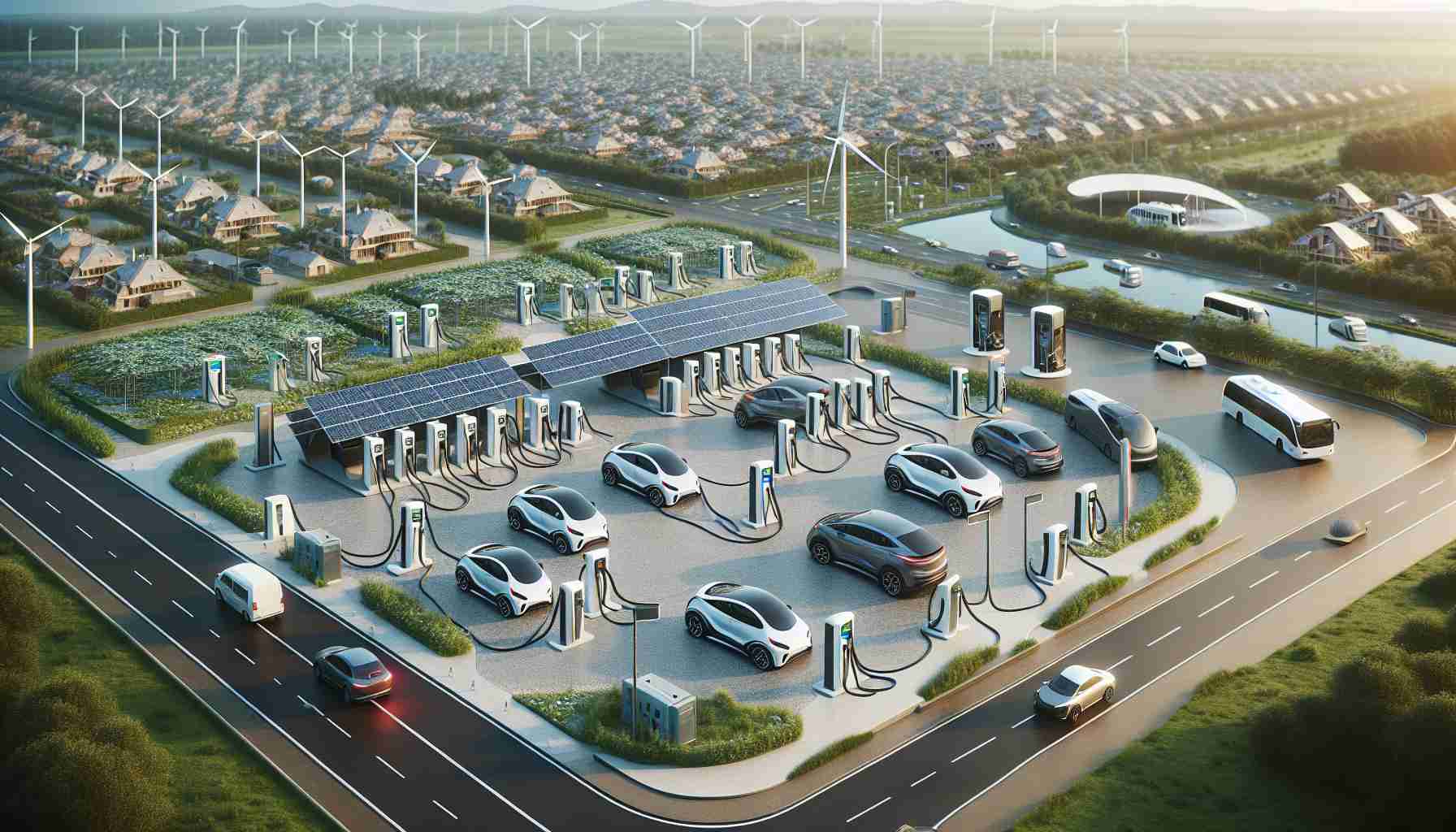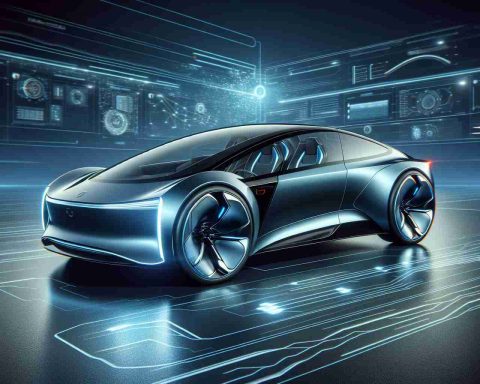In a groundbreaking move towards sustainable transportation, the Cherokee Nation is set to receive a significant boost in electric vehicle infrastructure. The U.S. Department of Transportation has awarded a remarkable $10.7 million grant to deploy 112 electric vehicle charging stations across 12 key locations within the community.
The initiative will focus on accessible sites including parks and health facilities, ensuring easy access for all residents. This effort aligns with the Cherokee Nation’s ambitious target to reduce its carbon emissions by 25% by 2027. The Principal Chief of the Cherokee Nation expressed enthusiasm about the funding, emphasizing its role in fostering the transition to electric vehicles as more residents make the switch.
Strategically located in towns like Ochelata, Jay, and Tulsa, these charging stations will enhance the reservation’s existing EV infrastructure, which includes facilities at well-known venues such as the Hard Rock Hotel & Casino Tulsa. The deployment plan ensures that nearly every part of the reservation will be within a 25-mile radius of charging capability.
The project will be managed in collaboration with Francis Energy, a reputable partner known for establishing extensive charging networks across the nation. By prioritizing clean energy solutions, the Cherokee Nation aims to create a more sustainable future for both tribal and non-tribal members, enhancing the region’s readiness for electric vehicle adoption.
Cherokee Nation’s Electric Vehicle Initiative: A Step Towards a Sustainable Future
In an inspiring development towards a more eco-friendly future, the Cherokee Nation has received a substantial $10.7 million grant from the U.S. Department of Transportation. This funding will facilitate the installation of 112 electric vehicle (EV) charging stations across 12 strategic locations within the community, significantly enhancing the region’s electric vehicle infrastructure.
This initiative is not just about enhancing convenience for residents. It plays a pivotal role in addressing environmental concerns, particularly regarding climate change and carbon emissions. The Cherokee Nation aims to cut its carbon footprint by 25% by 2027, aligning with broader global efforts to minimize greenhouse gas emissions. As electric vehicles become more prevalent, the reduction of carbon emissions will contribute to cleaner air and a healthier environment, benefitting not just the local population but the planet as a whole.
The chosen locations for the charging stations, which include parks and health facilities, ensure accessibility for all members of the Cherokee community. The implementation will position towns like Ochelata, Jay, and Tulsa within a 25-mile radius of charging stations. This thoughtful planning increases the likelihood that local residents will transition from conventional vehicles to electric models, further supporting the cause of sustainable transportation.
Moreover, the partnership with Francis Energy, known for developing extensive charging networks, indicates a strong commitment to creating a supportive ecosystem for EV adoption. This collaboration not only establishes a more robust infrastructure but also contributes to economic development within the Cherokee Nation. The growth of EV infrastructure can create jobs, stimulate local businesses, and attract tourism, particularly to venues like the Hard Rock Hotel & Casino Tulsa, which are part of the charging station network.
The project’s implications extend to the greater economy and future of humanity. As more communities transition to electric vehicles, the cumulative effect can lead to significant decreases in petroleum consumption, reducing dependence on fossil fuels and promoting energy sustainability. This shift is vital not only for combatting climate change but also for fostering resilience against economic fluctuations tied to oil prices.
By prioritizing clean energy solutions, the Cherokee Nation’s initiative exemplifies a forward-thinking approach to modern challenges. It sets a precedent for other communities across the nation, illustrating the feasibility and necessity of expanding electric vehicle infrastructure. This endeavor will likely inspire similar projects, galvanizing a wider movement towards sustainable transportation that embraces technology and environmental stewardship.
The future of humanity hinges on how we respond to environmental challenges today. The Cherokee Nation’s commitment to sustainable transportation is a beacon of hope, showing that local actions can indeed contribute to global sustainability efforts. Together with initiatives like these, we can aspire to create a future where both communities and the planet thrive harmoniously.
Charging Ahead: Cherokee Nation’s $10.7 Million Electric Vehicle Initiative
Drive Towards Sustainability
In a major advancement for sustainable transportation, the Cherokee Nation is being empowered by a $10.7 million grant from the U.S. Department of Transportation. This funding will facilitate the installation of 112 electric vehicle (EV) charging stations across 12 strategic locations within the community. The project is pivotal in supporting the Cherokee Nation’s commitment to reducing carbon emissions by 25% by 2027.
Key Features of the EV Charging Initiative
– Location Accessibility: The charging stations will be sited in easily accessible areas, including parks and health facilities, ensuring that residents can recharge their vehicles easily and conveniently.
– Strategic Placement: With installations in towns such as Ochelata, Jay, and Tulsa, the charging network is designed to ensure that most locations within the reservation remain within a 25-mile radius of a charging station.
– Partnership: The project will be executed in conjunction with Francis Energy, a noted leader in electric vehicle charging infrastructure, which will aid in deploying and managing the network effectively.
Benefits of the Charging Stations
– Increased EV Adoption: As the infrastructure improves, more residents are likely to transition to electric vehicles, contributing to a cleaner environment.
– Support for Residents: By placing charging stations in communal areas, the initiative addresses the needs of both tribal and non-tribal members, providing broader access to necessary EV resources.
– Improving Travel Convenience: The enhanced network will streamline travel across the reservation, making it easier for individuals to use electric vehicles without range anxiety.
Pros and Cons of the Initiative
Pros:
– Significant reduction in carbon emissions.
– Better accessibility for electric vehicle users.
– Potential for economic growth through increased tourism and attraction of EV-related businesses.
Cons:
– Initial costs of infrastructure development.
– Dependence on ongoing funding and maintenance.
Insights into Electric Vehicle Market Trends
The funding for this initiative taps into broader market trends that indicate a rapid increase in electric vehicle adoption nationwide. With more consumers shifting towards eco-friendly transportation, the demand for robust charging infrastructures is growing. The Cherokee Nation’s efforts align with national goals aiming for greater EV penetration and sustainability.
Predictions for Sustainable Transportation
As charging infrastructure expands, the following trends are expected:
– Continued government investments in renewable energy and EV infrastructure.
– Increased incentives for both consumers and manufacturers, facilitating the growth of electric vehicle markets.
– Enhanced partnerships between local governments and private companies to enable scalability in EV infrastructures.
Conclusion
The Cherokee Nation’s initiative represents a significant leap towards fostering a sustainable transportation ecosystem. By integrating these 112 electric vehicle charging stations, not only will the region reduce its carbon footprint, but it will also enhance the convenience of electric vehicle use, placing the Cherokee Nation at the forefront of the green transportation movement.
For more insights into sustainable initiatives and innovations, visit Federal Highway Administration.













